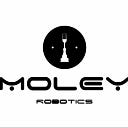If I were a good cook, I wouldn’t need to invent the robotic kitchen!
Meet Mark Oleynik, Founder and CEO of Moley Robotics
This is part one of a two-part interview. Mark Oleynik is founder and CEO of Moley Robotics, the pioneering technology startup that’s bringing a fully-automated robotic kitchen to the consumer market. In this interview, meet the man behind this bold new invention.
What gave you the idea for the Moley robotic kitchen? What triggered your imagination?
Moley was born from my desire to eat healthy, delicious dishes whenever I want. Ironically, I have no talent for cooking. If I were a good cook, I probably wouldn’t have thought of inventing Moley.
I believe we all want endless choices, in life and, of course, when it comes to food. But serving any dish, anytime, anywhere, is a tall order. At first, it sounds impossible. Nothing similar to Moley has ever existed. So it was important for me to imagine a system that could perform all the tasks I had in mind.
Once we had the basic concept, the technical execution, perhaps surprisingly, turned out to be the easier part.
How has your professional background influenced your work with Moley?
I started programming when I was a teenager and became a certified computer science engineer by the time I graduated from high school in Saint Petersburg, Russia. I stayed in the field of computer science through college.
I also worked on developing new drugs and introducing them to the market. I have been involved in creating and upgrading a range of different healthcare technologies. My team and I opened the first international standard bone marrow transplant clinic in Russia. I learned from these tasks about the intersection between health and technology.
Nothing similar to Moley has ever existed.
Have you ever worked in a kitchen before?
No! As I mentioned, cooking isn’t my talent, though excellent cuisine has long been one of my passions. That is why I began dreaming of a machine that could make any dish I want.
Today, generally speaking, we must visit restaurants to taste dishes made by world-class chefs. They don’t just come to our houses when we’re hungry. Even if you were very wealthy and could afford to invite Alain Ducasse over to prepare one of his masterpieces for you, I doubt Ducasse would drop everything and accept the offer.
When I am lucky enough to visit Michelin star-quality restaurants, I feel a profound sense of awe for the chef’s skills. Each time I taste a unique, magnificently crafted dish, I think about the people who are lucky enough to get to visit that particular restaurant regularly, who live nearby and who can afford it, who can come back any time they want.
My fascination with gourmet cooking made me fantasize about opening my restaurant. Or, less realistically, about developing the ultra-fast jet to fly me around to the world’s great food capitals like New York and Paris, or inventing a teleportation machine so I could visit any restaurant I wanted to on any evening. At the end of the day, our Moley robotic kitchen was the real-life result of these fantasies. We’ve been very excited to see this dream become a reality.
How did you meet your collaborator, master chef Tim Anderson? Was he excited about the idea from the beginning?
My friends recommended Tim as a talented, innovative chef, and introduced us. I told him about my idea. He agreed to be the first chef to work with our R&D team and to record a recipe for the robot. Tim’s first recipe for Moley was a crab bisque. The result was simply fantastic.
Moley is an invention that beautifully combines both worlds: top quality food and robotics.
Why did we need to hire a great chef with international awards? Because if a chef cooked a dish that tasted questionable, then we’d never be able to figure out whose fault it was. Was it the chef, or was it the robot? To be able to create a genuine proof-of-concept, we needed ideal starting conditions. We had to have a world-class chef, an ambitious recipe, and excellent ingredients. It is better to ask Tim what he thought of the idea at first, but I have the feeling he was excited to be a part of the development process. He was helpful during the R&D. He traveled with us to trade shows where he talked to the exhibit visitors and told them how this concept would change people’s lives. We will keep working with Tim. The Moley robot will continue cooking his soup.
Do you consider yourself to be a food entrepreneur or a robotics entrepreneur?
I am both. Moley is an invention that beautifully combines both worlds: top quality food and robotics.
If you were a superhero, what power would you want to have?
The truth is I believe in ordinary human powers. Intellect really can change the world. Knowledge, vision and creative minds are superpowers. I enjoy creating new things.
Which recipes will you record first once you have Moley in your home?
For my personal use, and only personal use, I will record my mother’s recipes for future generations of my family. They would become a part of my family’s history and culture.
Tim’s first recipe for Moley was a crab bisque. The result was simply fantastic!
Is there any advice you would give other entrepreneurs from your journey so far with Moley?
My approach to developing new products always was to work on technology that drives progress, improves people’s lives, and shortens or simplifies tasks in an everyday activity. If the startup serves the purpose of optimizing the usage of resources, if it brings positive change, then go ahead with your plan, start a company.
How can you get involved?
Sign up to our newsletter to find out when our crowd funding campaign on Seedrs.com goes public. Become a member of our growing community.
